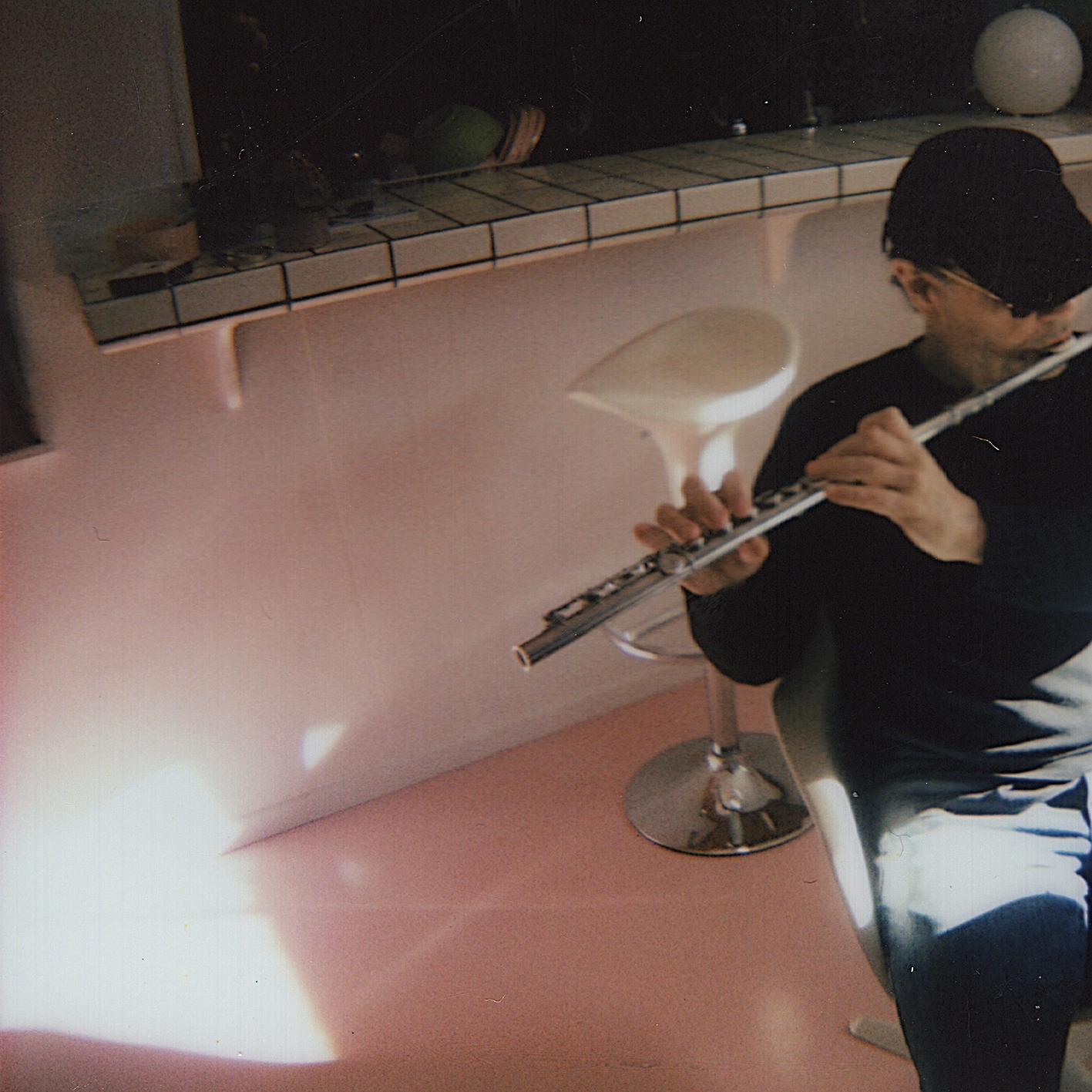Unknown Mortal Orchestra: "I can afford all the good outboard now, but I still get bored, go on eBay and look for the most bizarre gear I can find"
UMO founder Ruban Nielson tells Danny Turner how he relishes staying true to the band’s sonically ambiguous sound
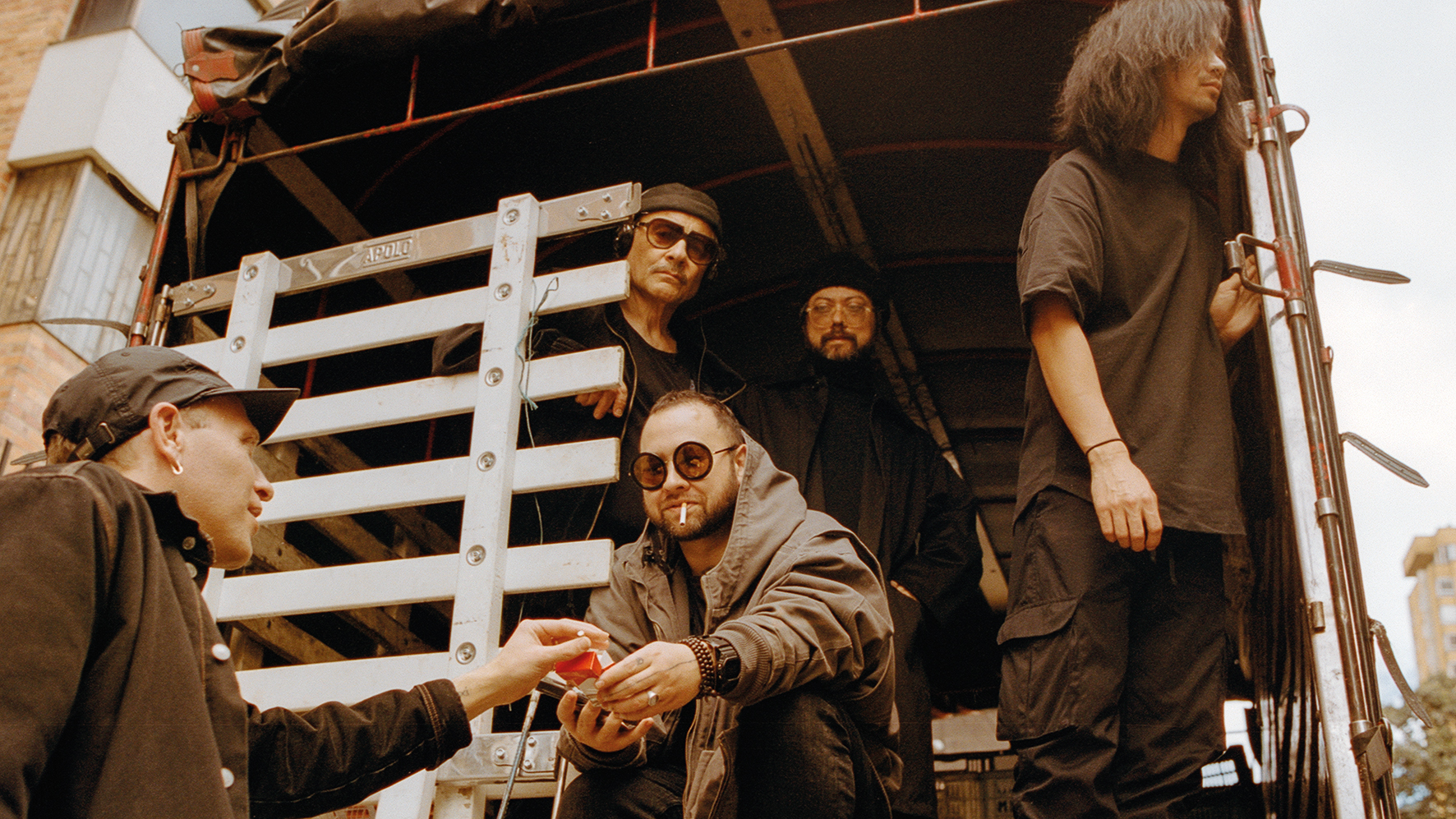
Want all the hottest music and gear news, reviews, deals, features and more, direct to your inbox? Sign up here.
You are now subscribed
Your newsletter sign-up was successful
New Zealander Ruban Nielson is one of the few artists that can point to the benefits of online anonymity when his 2010 track Ffunny Ffrends saw him relentlessly pursued by blogs and labels alike.
Six albums later and the trio of Nielson, Jake Portrait (guitar) and sibling Kody Nielson (drums) have absorbed listeners via Unknown Mortal Orchestra’s genre-defying approach to psychedelic rock.
In 2018, the trio surprised us once again with the refreshingly raw, Miles Davis-inspired jazz album IC-01 Hanoi. Recorded in Vietnam, Nielson continued his aspiration to make music on location by relocating to Palm Springs and the lush coastline of Hilo, Hawaii, where a family tragedy left him having to face his own mortality.
Bringing his brother, Kody, closer to the fold and enlisting his father Chris Nielson to play saxophone and flute, the surprisingly upbeat V draws from UMO’s absorption of West Coast AOR and a desire to represent Hawaiian hapa haole music whilst basking in the band’s famously mischievous lo-fi aesthetic.
Having left the Mint Chicks prior to the release of your debut solo album you seemed surprisingly keen to jump back into a band environment?
“I had to make a decision because there were a lot of things about starting a band that were a bad idea, like not having much money and not having much to show for it, but in the end the idea was just way too seductive and I didn’t want to spend the rest of my life thinking, what if? I didn’t imagine UMO would take me on such a massive ride though – it’s been more than I bargained for in many ways.”
Do you think that having your brother and, occasionally, father in the band gives you a feeling of security in a business where trust is often an issue?
Want all the hottest music and gear news, reviews, deals, features and more, direct to your inbox? Sign up here.
“It’s become more about that. Initially, I came to the States to run away from my family, my past and my responsibilities, but at some point you have to face where you come from and what people need from you.
“When I left New Zealand, I didn’t feel I had much to offer and thought nobody would miss me if I ducked out for a while, but with the success of the band I started to think, actually, I’m the only financially stable person in the family now [laughs]. Then I started looking back towards everybody to see if I could be of any help.”
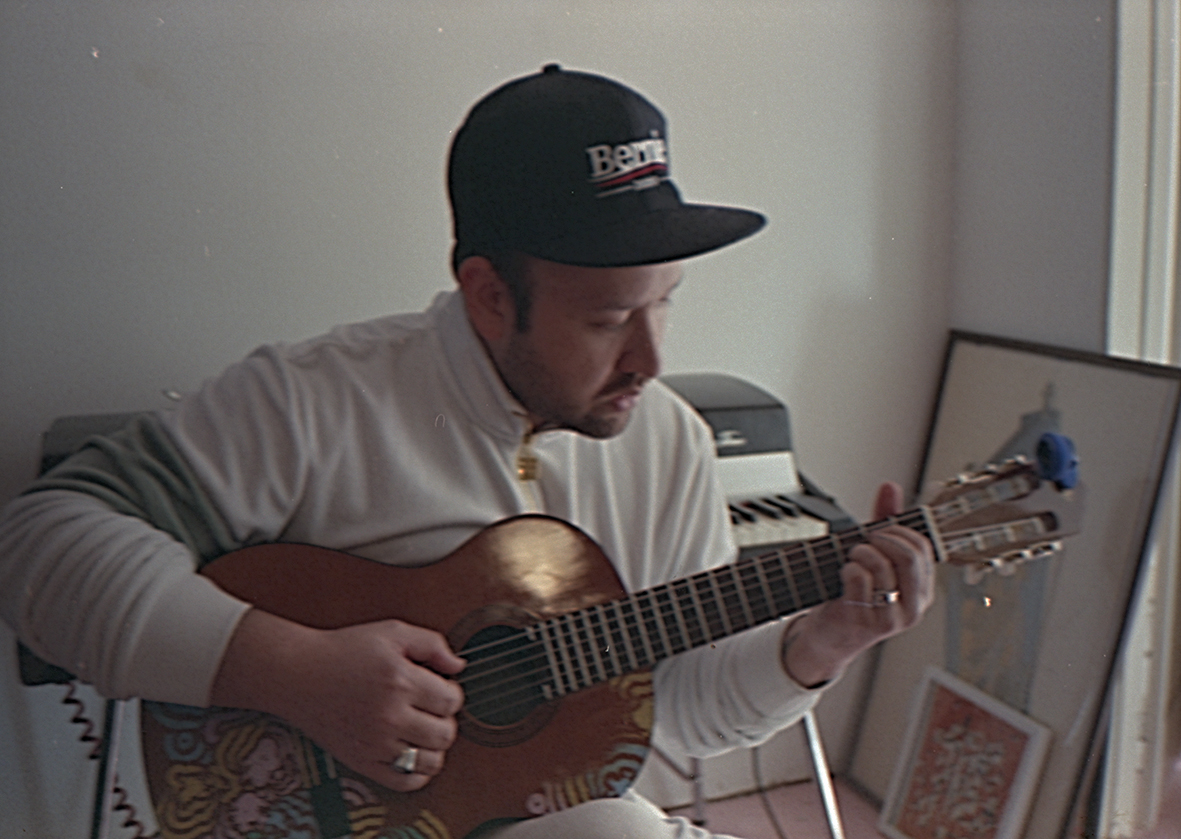
UMO’s instrumental jazz album IC-01 Hanoi was very different to anything you’d done before. Did you carry any processes forward to the latest album, V?
“I didn’t particularly want to spend my life alone in my home studio and found that I didn’t much like the experience of succeeding alone. If you do something by yourself and everyone says you’re a genius there’s no one to go to the pub with and celebrate that success.
“Given that it’s still hard for me to figure out where people can come in or when I need to work on music alone, I’ve tried to figure out ways to collaborate and share those experiences. For the album IC-01 Hanoi, we were in Hanoi working on the album Sex & Food when I had this idea to get my father, Jake and Kody involved and spend time trying to capture the mood of being in a new place and getting that onto a record.”
Did the experiment pan out as expected?
“I actually underestimated how effective capturing that mood was going to be. Once Sex & Food was mixed and finished I dug into those other sessions and everything came together surprisingly quickly. When IC-01 Hanoi came out people seemed to really like it, so I wanted to keep to the idea of going to a location, playing what we feel and making some sort of instrumental collage to capture the best bits.
“These days, everything is turned into a product, but the older I get the more valuable it gets to be able to listen to things you’ve made in the past and suddenly feel like you’re back there. It’s a privilege to be able to make a living from doing that and we’re actually mixing IC-02 Hanoi as we speak.”
Under what environment was the album V recorded?
“In our old punk band, my brother Kody and I used to write all the songs and he’s now become an increasingly important part of the process again. One of the reasons Portland is such a productive place to work is because it rains all the time so you have to spend a lot of time indoors.
“That’s nice if you’re making something creative, but this time I really wanted to make something more sunny and upbeat. Spending time in Palm Springs was a big part of that and we visited Hawaii later on.”
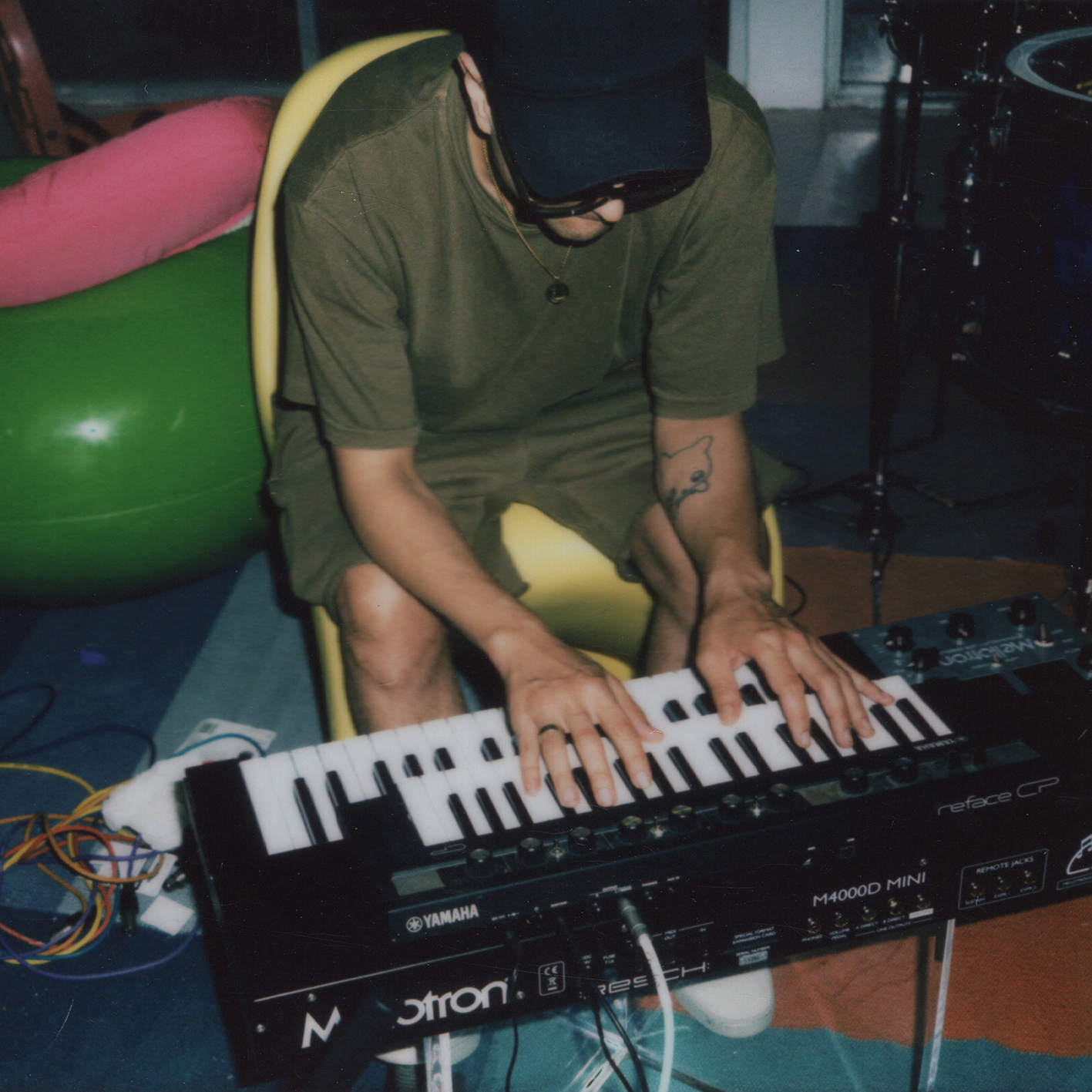
Why Palm Springs in particular?
“It reminded me of my childhood. My parents met on tour and used to drag us around to all different places – we had no money, but saw lots of motels and swimming pools. Unfortunately, throughout 2021 a bunch of bad things happened to my family all at once, including my uncle’s cancer diagnosis. That was really sad but a manageable disaster because I felt I had some power to alleviate the tragedy by moving my mum back to Hawaii so she could spend time with her brothers at the town they grew up in.
“Making music didn’t feel important during that time – it seemed stupid and self-absorbed, but I got filled up with emotion and felt I had to offload it somehow because I didn’t know of any other way to deal with that. As a musician, I rediscover again and again how that helps me to stop the voices in a healthy way rather than having to medicate. Suddenly, all this music started pouring out and my brother and I came back to the album with a sense of purpose and clarity.”
In more practical terms, how did you and Kody record the songs?
“The formula happens in a couple of ways. When I sit down and play a song on an acoustic guitar it sounds like a folk song but Kody and I have to decide what the groove is going to be and whether we need to turn it into a rock song or draw from some other genre of music.
I didn’t feel the need to graduate to making ‘proper’ records - as the band got more successful the less I felt the desire to sound more professional
“The other way of working tends to be that Kody brings everything to me but the vocals. One of the first tracks we wrote this way was Multi-Love where he wrote these beautiful piano chords I never would have written, so I took those away and thought about what to sing over them. The next phase is usually about us sitting around jamming and playing around with chord changes until everything starts to gel. I normally handle the lyrics and melody because that’s not something Kody wants to share. Between the two of us, he’s not the most vulnerable [laughs].”
An intriguing element to UMO’s sound is how you go a little further than most to dirty things up. Where does the need to implement that aesthetic come from?
“There are a lot of influences, but Gabriel Roth, who’s probably best known for engineering some of Amy Winehouse’s most famous records, wrote an online manifesto called Shitty is Pretty and the first time I read that it really resonated with me.
“My brother and I used to make music like that anyway, but we’d never had anyone embolden us to be proud of it. Once I read that, I fell in love with the whole idea of it and as the years went by I saw how people were starting to warm to the idea that not everything has to sound sophisticated or clean. Because of Roth, I didn’t feel the need to graduate to making ‘proper’ records, and as the band got more successful the less I felt the desire to sound more professional.”
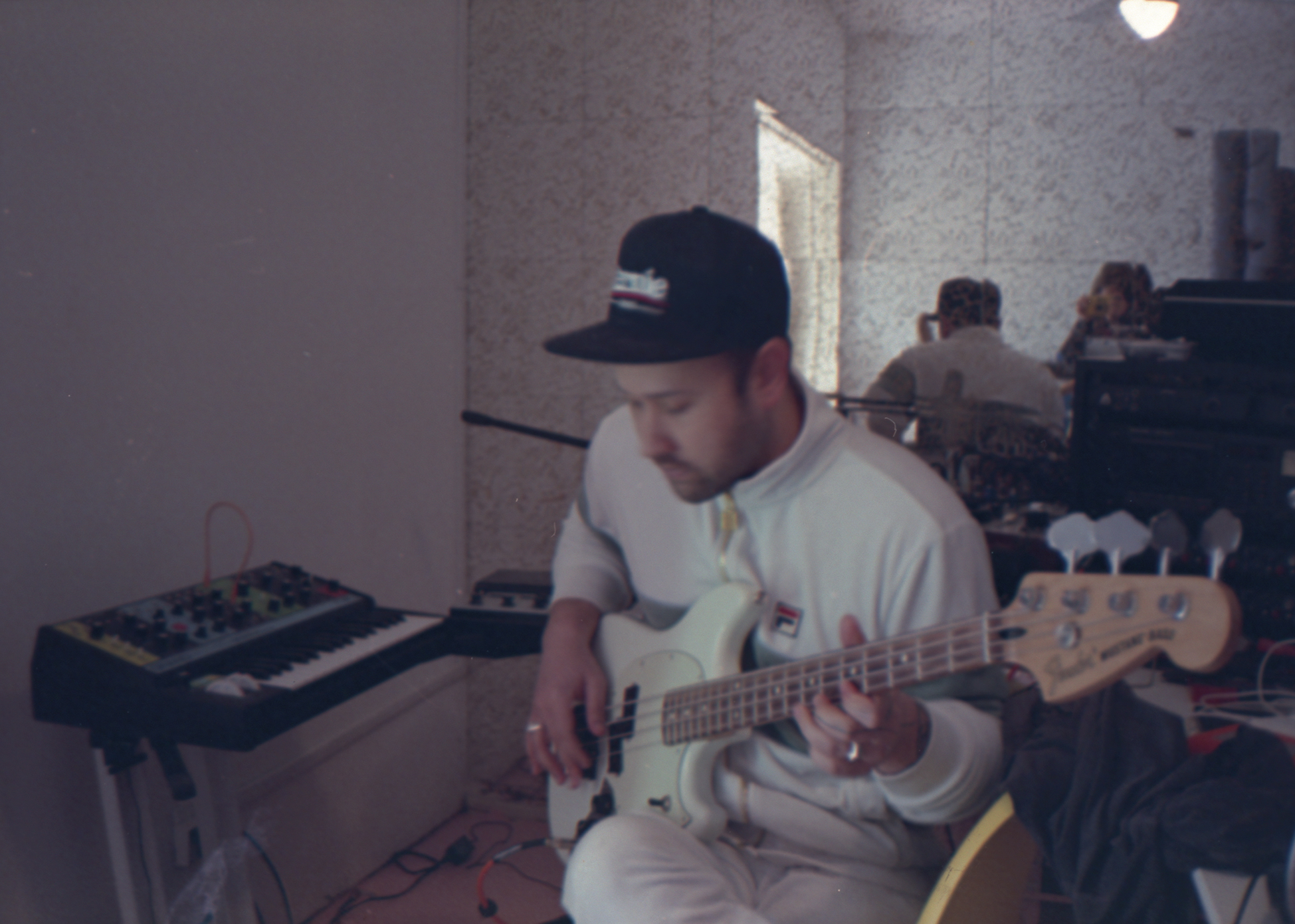
Were you always more attuned to listening to that type of lo-fi sound?
“As I’ve gotten older I’ve realised that it’s simply down to how I like to hear records and that has a lot to do with growing up listening to cassette tapes. I couldn’t afford to upgrade to high-format digital or CDs until the internet arrived, so I remained stained by the cassette tape format.
“Basically, the music doesn’t sound tight to me until it reminds me of riding around in my dad’s Triumph listening to music on the cassette deck, and it feels OK to stay trapped in that era.”
Is your unconventional approach to sound added artificially in post-production or embedded into the recording process?
“When I was a kid, my first attempt at making music was to sit around at my friend’s place making up jokey punk and hardcore songs about our schoolmates. He had this tape recorder called the Princess Walkabout where you could put a cassette in, push record and everything sounded great to us.
“Meanwhile, my brother had been messing around with beats on my dad’s four-track and had a guitar, so I guess we combined that and ended up making all these tapes. By the time we got our hands on Pro Tools, I would listen back and think that it didn’t sound as fat, real or exciting, and after a while realised that was all to do with the tape.
I went online, watched a million YouTube videos and learnt how to make dubstep, but I didn’t like the way it sounded
“On our second record, I found a similar tape machine and asked Kody to record beats straight into that using the built-in mic before building the song on top. Later I realised I could do some of those things in post-production, but I don’t like making music in predictable ways and no matter how I do it it’s always going to sound the same. It’s almost as if I can’t escape myself.”
Have you tried experimenting with more modern recording techniques?
“At one point I started experimenting with Ableton because I did want to learn new techniques. That was because I started listening to dubstep and was wondering what the hell I was hearing or how I might sit down to make it.
“So I went online, watched a million YouTube videos and learnt how to make dubstep, but I didn’t like the way it sounded. It’s not like I can’t listen to stuff that doesn’t sound like UMO; it’s more about taste rather than technique.”
On a track like Shin Ramyun, the drums sound very threadbare, as if they’re about to fall apart. Is that down to sound processing or the tools you’re using?
“I can afford to get all the good outboard now and we do use Neve channels on the record and the odd expensive microphone, but I often get bored with that so I’ll go on eBay and look for the most bizarre gear I can find. If it only costs $6 and turns out to be unusable, I’ll just throw it in a box.
“A mic can cost $10,000 or $10, but the chance of it ending up being the main vocal mic on my record is still 50/50. Many of my vocal tracks are made on mics that came with an old reel-to-reel and when we record drums we’ll often approach things that way too.
“If something sounds boring, we’ll grab the nearest mic to see what happens. If it sounds crazy and terrible I’ll still work with it because I want to see where that process takes me. I played a lot more of the drums on V because I had the time to do so over the pandemic, but I’m nowhere near as good as Kody. That’s given me much more of an appreciation for what he does, and a lot more opinions on how we can mess the drums up [laughs].”
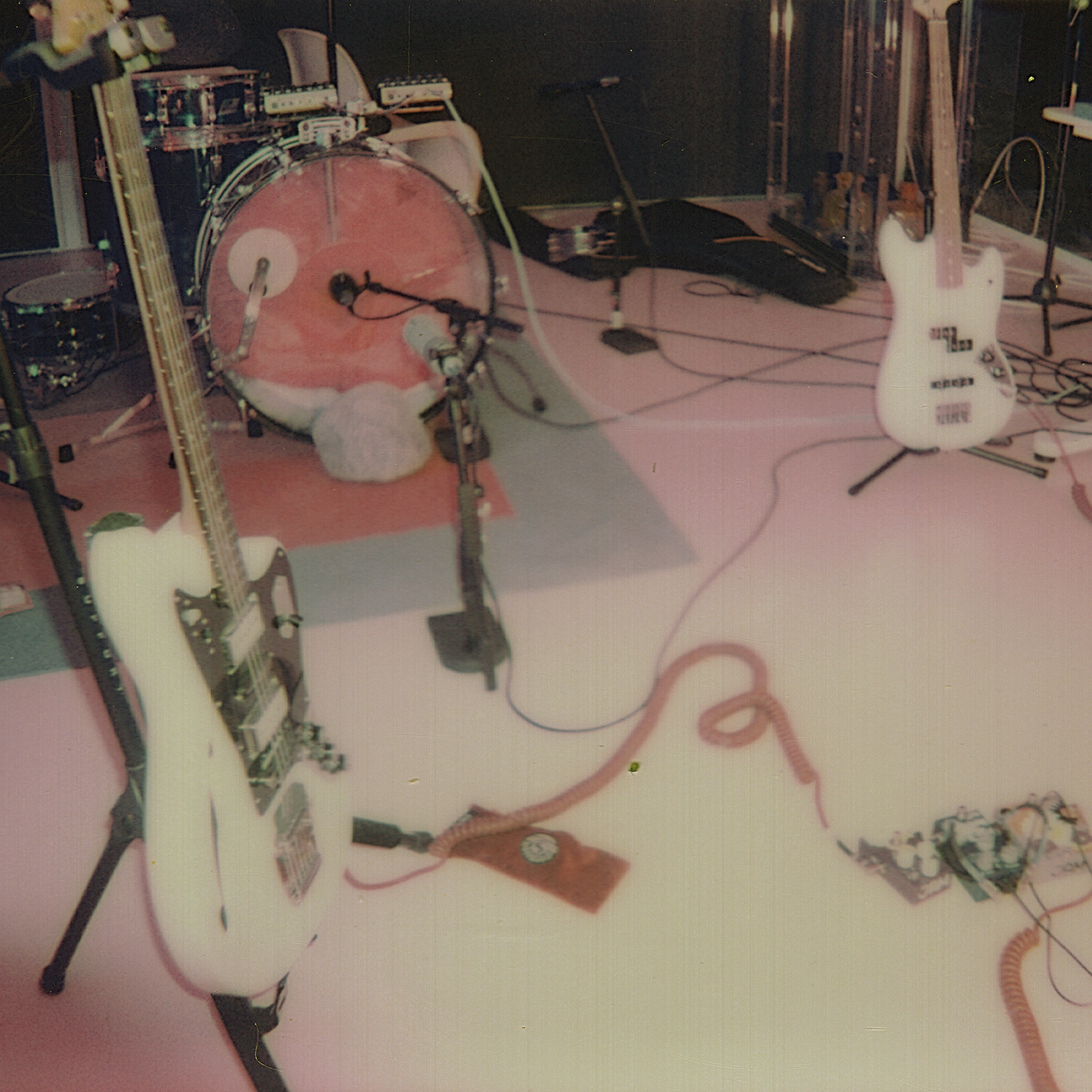
Does your way of recording cause consternation with your mastering engineer?
“I’ve built this incredible respect for mastering engineers. When we were making punk records I was always confused about what they did. It all seemed like voodoo to me, but over the years I’ve learnt about what they really do and at one point started to develop a dream about working with Bob Ludwig, who did a bunch of Bowie and Led Zeppelin stuff.
“He’s done a lot of my mastering now and Joe Lambert remastered our second album, II. When I recorded the first UMO album, it was amateurish but not as quite as wacky as II because I was experimenting without knowing what I was doing. A lot of it had to do with not having any money, but also being ignorant and wondering why people didn’t produce a certain way, before finding out later why they didn’t.”
What mistakes were you making others might avoid?
“I didn’t have a record deal so was making the album on the off-chance that somebody might want to hear it. That was a good approach, but slightly desperate. Then I signed and got some money before the record came out and was able to buy my first piece of pro gear, which was a 500 Series EQ.
A lot of my guitar chain has ended up being similar to Jimi Hendrix’s chain - I sometimes worry that my Hendrix worship will go too far
“Unfortunately, I could only afford one of them so I mixed the whole record through both channels without listening to them independently at the same time. That was a terrible idea. Anyone who knows how to make a record knows that the bass can’t be panned left or right because it will sound terrible and the needle will jump out of the record.
“The other thing is phasing – if things are out they just sound weird and frequencies can just disappear. Joe must have thought I was some sort of insane homeless person who’d wandered off the street and presented him this record. He had to repair all these phase and bass issues, and I ended up with a record that did really well over time but I didn’t go back to using Joe because I was so embarrassed about how II was made.”
What are you using to dirty up sounds these days?
“I use families of pedals because I like to change the brand every now and then. A lot of my guitar chain has ended up being similar to Jimi Hendrix’s chain, which is based on a Fuzz Face and a Uni-Vibe. I sometimes worry that my Hendrix worship will go too far, but I like the sound and there’s a million ways to mix that up.
“Another famous Hendrix pedal is the Octafuzz, which is a Foxx Tone Machine. I’ve gone from the full tone Octafuzz that I originally discovered to using a homemade one for years. As long as you have the basic circuit, you can build your own pedals and I’ve made a few that are quite convincing.”
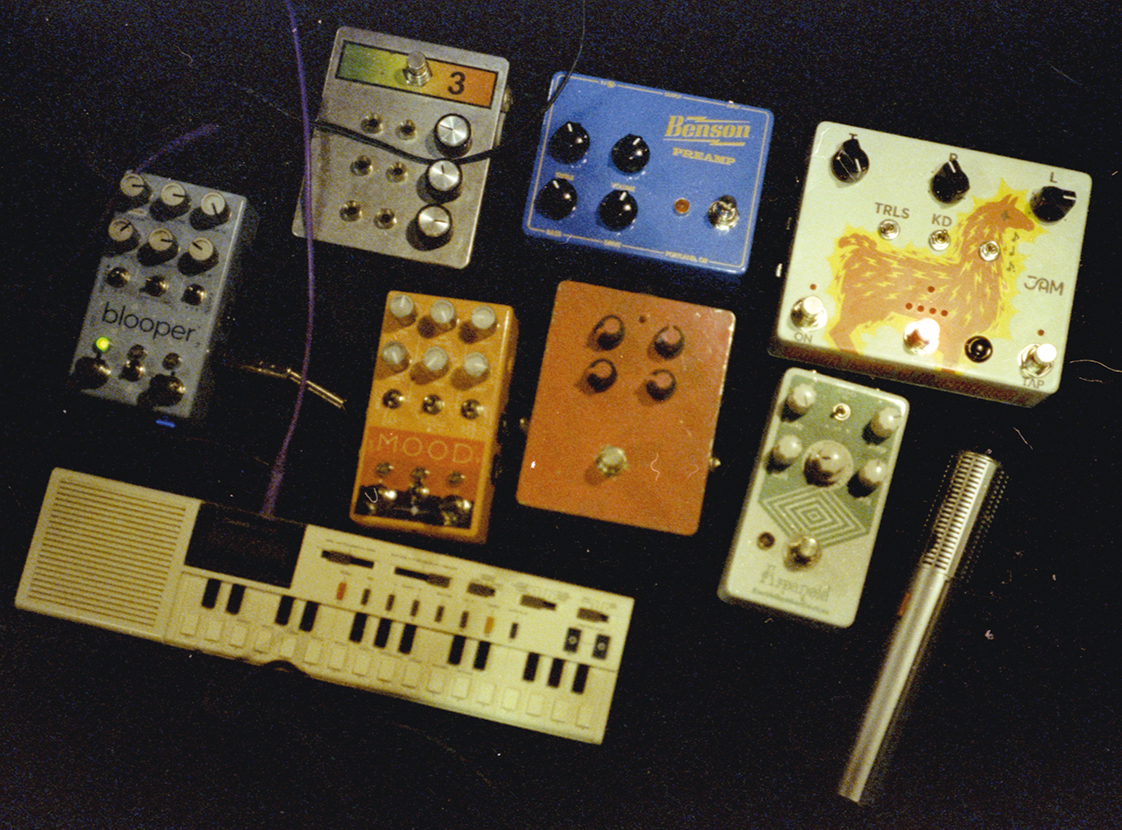
How complicated is the process of making a pedal?
“I make it complicated because I was never an electronics guy, but I taught myself to solder because I became a control freak about how the band sounded live. The records were so specific and I wanted the live show to sound exactly like that so I started to make bespoke pedals.
“I used to love going to junk shops around Portland and buying machines that looked old. They could be broken, but if you unscrew them, rip everything out and try to put them in a pedal you can make some really weird fucking ancient, burnt out thing that sounds great. That was a really fun hobby but I don’t do it as much now because I have friends who can do it better.”
You have friends who make you custom pedals?
“I have a friend who owns a Norwegian pedal company called Fjord Fuzz. His band supported UMO twice and he’s always making a version of something to develop my sound. There’s also a Greek company called JAM Pedals who make one called the RetroVibe out of old components and it’s probably the best Uni-Vibe that I’ve come across.”
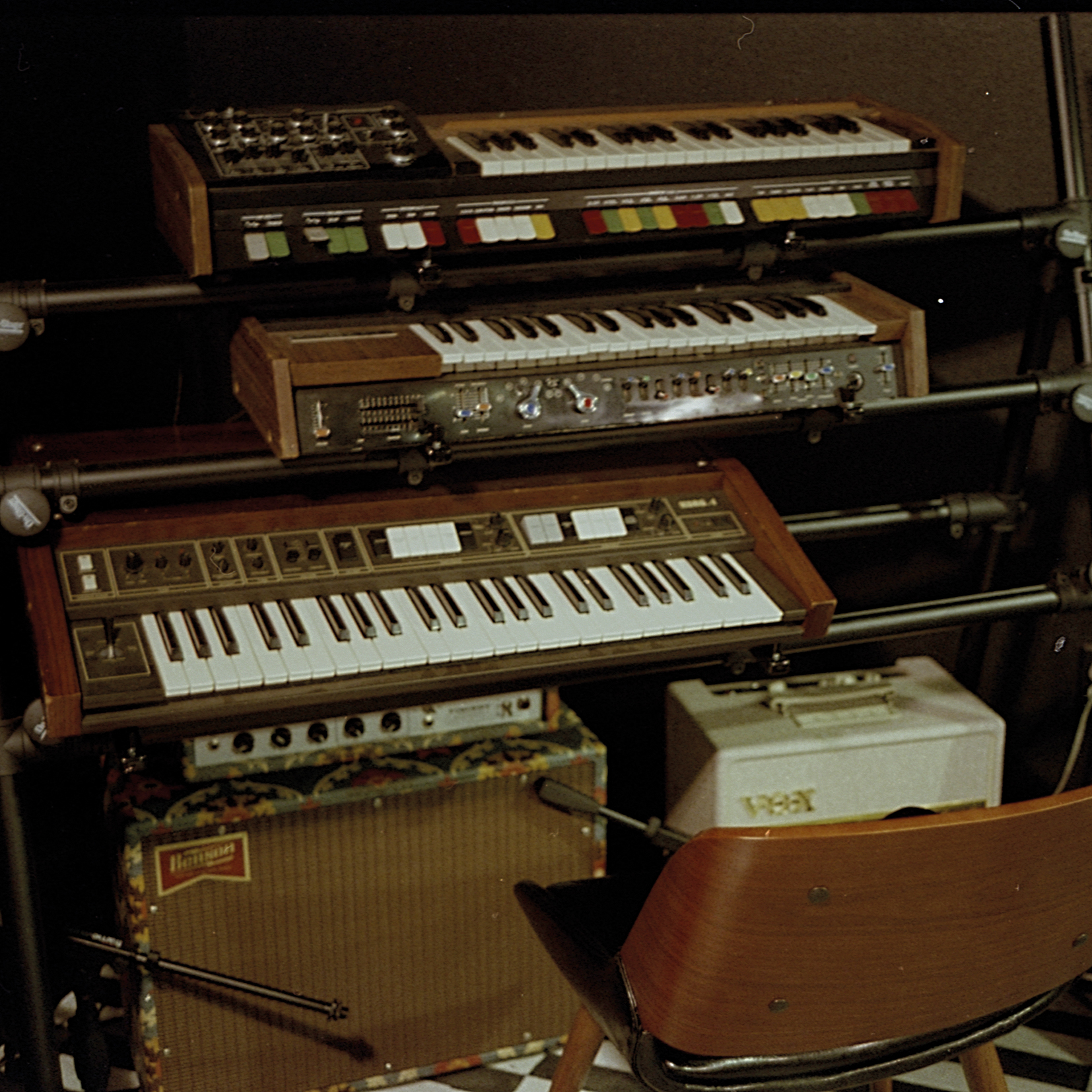
Do vintage pedals have a vintage sound similar to how analogue synths differ from their digital counterparts?
“The older ones do sound different because the transistors and resistors are not as good and that gives them a broken sound. If a current is running through a component that is reasonably faulty and keeps breaking up that will come out in the music somehow and that’s a hard sound to find.
“They call people who mess around with this stuff ‘tone chasers’ because they’re obsessed with getting the perfect sound. I was like that for a while, but at some point it turns into some weird snake oil-type thing because what I’ve learnt is that it’s not a sound you’re chasing but a feeling.
Sound can act as a painkiller, but you can end up pulling an entire thing apart looking for the ghost in the machine
“If something transports you to your childhood, it’s a time machine not a synth and that sound is a lot more powerful than any musical instrument. Sound can act as a painkiller, but you can end up pulling an entire thing apart looking for the ghost in the machine.”
Do you have any hardware synths that evoke similar emotions?
“I have a Univox Mini-Korg, which may have been the original Korg. Originally, it was a cheap Japanese synth – a bit like an old Datsun, which itself was like a budget version of a Corvette or nice European sports car. These days you might pay more for a Datsun Z than you would a Porsche and Mini-Korgs are a bit like that. They’ve become so special, even though they were a bit like toys when they came out.”
Do you look for gear while you’re on location?
“When we were in Vietnam I bought a Jew’s harp, which produces an Ennio Morricone-type sound. You can hear it on the IC-01 record. Although we want to go to these places, we don’t want to recreate an approximation of the sound from that country. For example, Bogotá has an incredibly rich musical history, but we didn’t want to play anything Colombian on the record. If we want to capture the flavour of a place, it more depends on whether we happen to meet someone that’s cool and talented.”
Do you use anything in-the-box that brings a similar quality to some of the instruments we’ve discussed?
“I’m quick at using Pro Tools but feel like I’ve only scratched the surface of what it can do. People who engineer records would probably find how I use it quite curious or funny, but there’s this thing called the EQ1 that only has one frequency but I’ve been using it since I was a kid.
“Now they have all these amazing FabFilter EQs, but I always end up stacking Pro Tools’ EQ1 on all my frequency bands. Once I’ve done that I’ll dump it to tape so I can end up with a clean track, and then I can add some more EQ1s [laughs].”
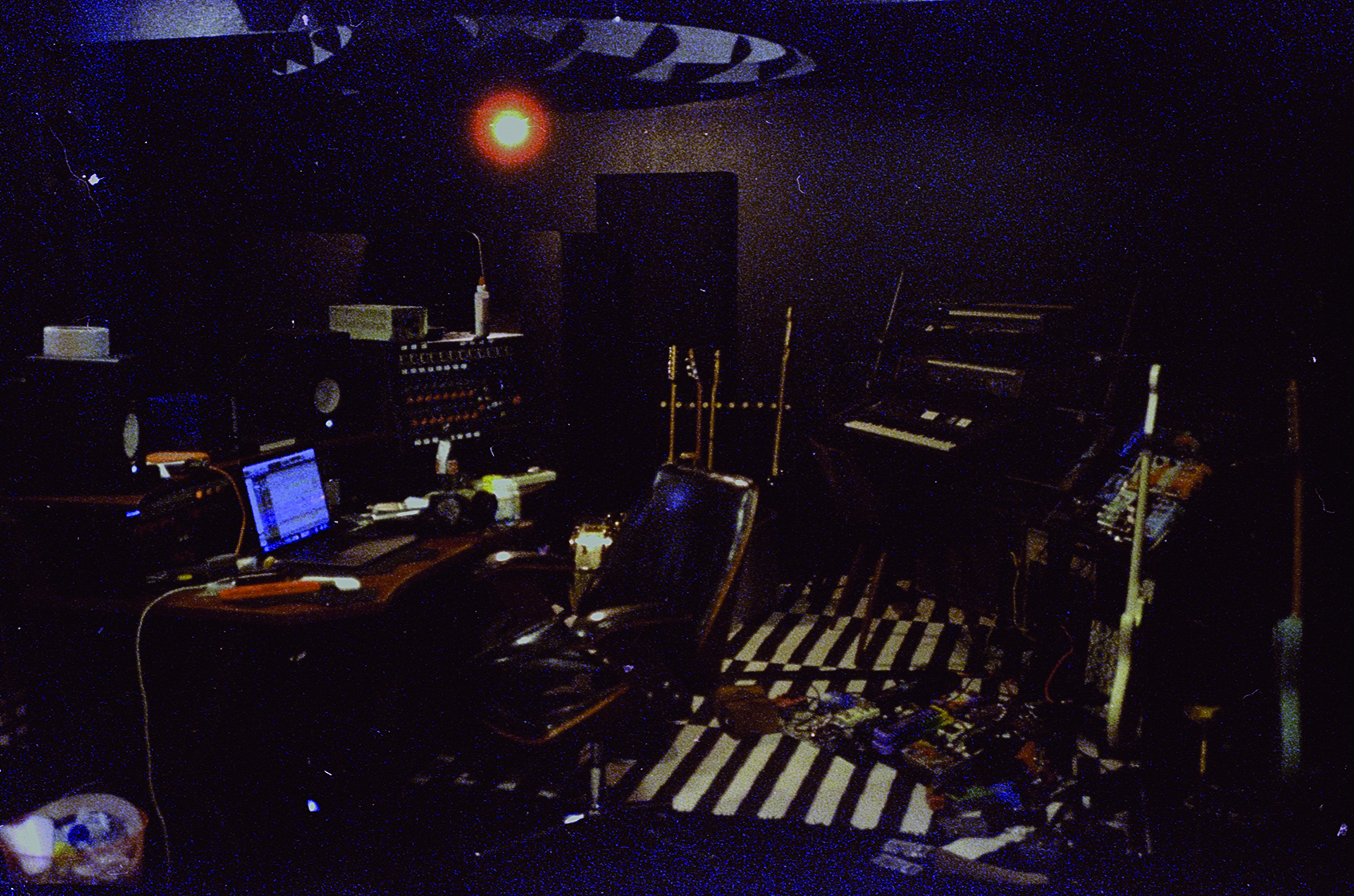
It sounds like you adopt the same archaic procedures to software as you do hardware?
“Sometimes I’ll try to look outside of where people would expect to find a plugin and I watched a masterclass by Deadmau5 to try to see if he was using anything that might be interesting to mess with.
“He had this really crazy EDM limiter called the OTT that he’d put on a track to smash everything. I used it on Sex & Food, IC-01 and a little bit of the new record but Bob Ludwig didn’t like me crushing everything that much. I found it really fun though! Deadmau5 is an interesting dude – he has a whole wall of modular synths.”
The DIY nature of modular might appeal to you…?
“I went down the rabbit hole a little because I went from building pedals to re-cabbing old synths and building synths from scratch. When you build your own modules you don’t have to worry about the power supply, so I got quite interested in making all sorts of different distortion modules.
Do I really need an entire Ferrari’s worth of little blinking lights across the entire wall of my studio just to make something go ‘beep, beep’?
“Then I suddenly realised how deep that rabbit hole goes and started thinking, do I really need an entire Ferrari’s worth of little blinking lights across the entire wall of my studio just to make something go ‘beep, beep’? Through all of that anorak stuff, it’s important to remember that the song is all that really matters.”
Do you believe that good production can’t save a bad song?
“I read a review that said, if UMO produced and mixed his stuff properly he could create a Bruno Mars-type song, and a lot of people have said, ‘imagine how good you could be if you recorded stuff properly’. I guess I want to prove the strength of the song by recording it in a way that’s not bad, but flawed in contrast to the vast amount of stuff that’s impeccably produced but has very little content.”
Unknown Mortal Orchestra's V is out 17 March on Jagjaguwar.
